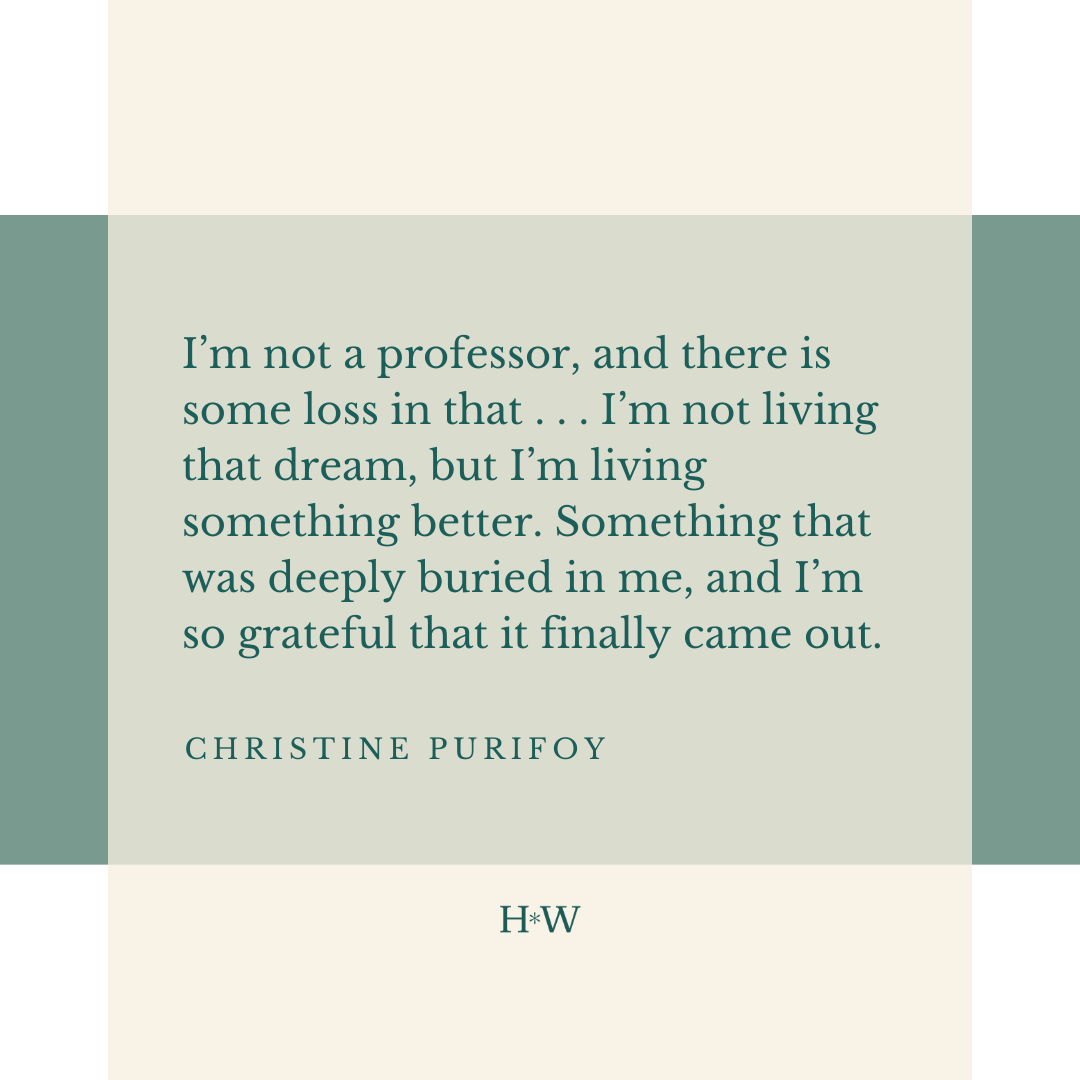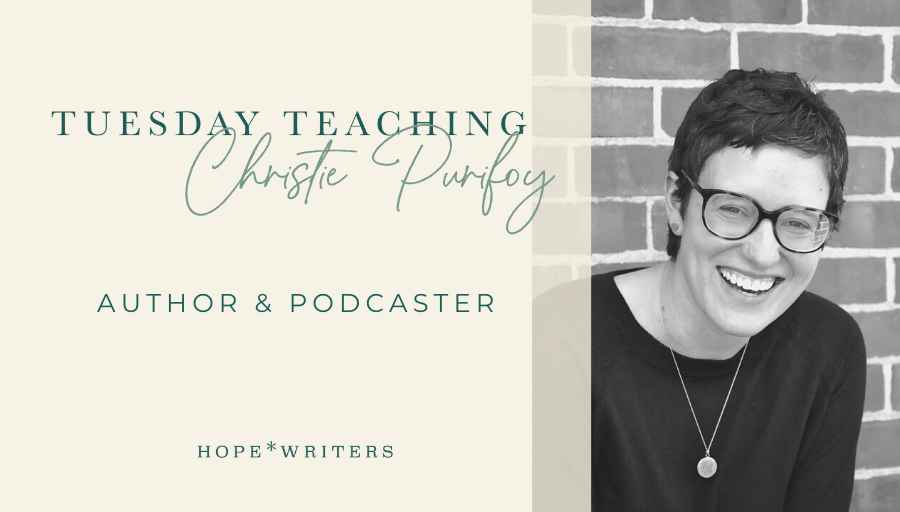4 Questions For Writers Before You Quit Your Day Job
May 03, 2021
Author Christie Purifoy grew up a dedicated reader with a deep admiration for writers, but she never believed she could be one of them. Rather than write books, she dedicated her life to teaching them as a professor of English literature. It wasn’t until she found herself deeply dissatisfied with work in the college classroom that she considered she might have something else to offer.
“I’m not a professor, and there is some loss in that . . . I’m not living that dream, but I’m living something better. Something that was deeply buried in me, and I’m so grateful that it finally came out.” — Christie Purifoy
Christie pivoted, quit the classroom, and dedicated herself to writing the stories she was living. She’s now the published author of two books with another contracted book in the works.
If you’re a writer thinking about a career change but you’re not sure if it’s a possibility, consider these four questions:
Why do you want to write?
Are you a lifelong book lover? A dedicated journal scribbler? Do you have a message you want to share with others through writing? Knowing why you want to write will help you decide if a change in your career is worth pursuing.
If you’re satisfied writing stories for your kids, using your free time to write as a hobby, or offering your work for free online, you’re still a writer! But perhaps a pivot in your vocation isn’t necessary. Be honest with yourself about your motives and your long-term goals for your writing, and let the answer guide you forward.

Do you have a story to tell?
Sometimes we dabble in the craft of writing, we write online, or we write articles part-time for other publications. These are perfectly valid and valuable forms of writing, but they don’t always require a career change. When considering a more permanent pivot in your vocation, it’s worth considering what kind of writing you plan to do.
Do you have a story that burns inside of you, a story that requires enormous energy and dedication? If you have a story you must tell, or you sense a deep vocational calling to write the stories inside of you over the course of many years, then a pivot may be necessary for your words to make it to the page and your audience.
Do you have an audience?
If you’re new to writing, your audience may be limited to yourself or your immediate family. There’s immense value in writing for a small audience when you’re getting started. Words are never wasted — they’re always beneficial in helping us grow in our storytelling.
If you’ve been writing for some time, you may have already identified your ideal reader. You know who you’re writing for and why they want to read your work. Knowing your audience is not genre-dependent. Regardless of what we write, we need a clear image of the reader on the other end of our words.
Your decision to pivot may come down to where you are in building an audience. This is what it takes to grow in both the art of writing and the business of publishing. Is audience building something you’re willing to do for the long haul? If so, consider pivoting.

Do you need to quit your day job?
While Christie was able to leave her job as a professor and focus entirely on writing, leaving your career is not always a possibility. If you’re new to writing and still developing your why, your story, and your audience, it’s unlikely writing will pay the bills initially.
For a time, you may need to remain bivocational, and for some writers, continuing work in another field adds great value to their storytelling. Some writers work part-time in their primary vocation and write part-time, others squeeze their writing into the cracks of a full-time position, and some are able to focus fully on their writing.
At hope*writers, we believe there’s a six-stage path to making progress, and knowing which stage you’re in now can help you make the best choice regarding a full, partial, or minor vocational pivot. Whatever your stage, we believe you are a writer. Your words matter, regardless of when, how, or for whom you write them!
Want to know more about how to honor your stories and tell them well? Christie shares more about memoir writing and the publishing process. Click here for free access to our entire conversation and take one step toward balancing the art of writing with the business of publishing.
Stay connected with news and updates!
Join our mailing list to receive the latest news and updates from our team.
Don't worry, your information will not be shared.
We hate SPAM. We will never sell your information, for any reason.


